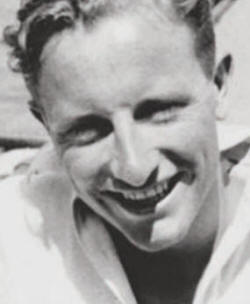

Partner Percy Stevens
Queer Places:
University of Cambridge, 4 Mill Ln, Cambridge CB2 1RZ
Coleherne, 261 Old Brompton Rd, Earl's Court, London SW5 9JA
Salisbury, 90 St Martin's Ln, Charing Cross, London WC2N 4AP
Rockingham, 9 Archer St, London W1D 7AX
63 Balcombe St, London NW1 6HD, UK
 Roger Lockyer (27 November 1927 – 28 October 2017)[1] was an English historian, academic, and writer. He was a reader in history at Royal Holloway, University of London for many years, specialising in research and writing on the Tudor (1471-1603) and Stuart (1603-1714) periods.
On 21 December 2005, Lockyer entered into a civil partnership with
Percy Stevens, his life partner of 39 years, at the registry office in Westminster, London. On 26 June 2014 they were among the first couples to legally convert their civil partnership into a marriage.
Roger Lockyer (27 November 1927 – 28 October 2017)[1] was an English historian, academic, and writer. He was a reader in history at Royal Holloway, University of London for many years, specialising in research and writing on the Tudor (1471-1603) and Stuart (1603-1714) periods.
On 21 December 2005, Lockyer entered into a civil partnership with
Percy Stevens, his life partner of 39 years, at the registry office in Westminster, London. On 26 June 2014 they were among the first couples to legally convert their civil partnership into a marriage.
Born in London on 27 November 1927, he was educated at King’s College School, Wimbledon, winning a scholarship to read History at Pembroke College, Cambridge. He went up in 1948 after National Service in the Navy, where “it was a question of whether you weren’t gay”. Lockyer was the esteemed author of many books, including: A History of England (1961), Henry VII (1968), Habsburg and Bourbon Europe 1470- 1720 (1974), The Life and Political Career of George Villiers, First Duke of Buckingham, 1592-1628 (1981), The Early Stuarts: a political history of England 1603-1642 (1989), and James VI & I (1998) , etc.
Before the Sexual Offences Act 1967 partially decriminalised homosexual relationships, men convicted of being in a same-sex relationship risked jail, loss of livelihoods – or worse. As a result Lockyer had to keep his private life completely separate from his professional life. Yet there was a thriving, semi-secret world of gay clubs and pubs, and in his evenings off Lockyer became a regular frequenter of such establishments as the Coleherne in Earl’s Court, the Salisbury on St Martin’s Lane and the Rockingham, behind Leicester Square, otherwise known as “the gentlemen buggers’ club”. A frequent companion on these jaunts was Jeremy Wolfenden, the gay son of Lord Wolfenden, author of the 1957 report which recommended decriminalising homosexuality.

Roger Lockyer, left, with Percy Stevens, after registering their civil partnership in 2005 CREDIT: LEON NEAL/ AFP/Getty Images
On one outing to the Rockingham, where patrons had to give their name at the door, Lockyer asked his companion whether he was not worried about admitting his identity: “He said: ‘Oh don’t worry my dear I always give your name.’ So I’m recorded as having a much busier social life when it was in fact Jeremy capering about town while his father made these important recommendations to the government about ‘queers’.”
While Lockyer welcomed the 1967 Act, he admitted it meant that his nocturnal other life “didn’t have that thrill about it” any more. He had met his future husband, the South African-born actor Percy Stevens, on a blind date at a lunch party in 1966, beginning a relationship which, for a year, made them criminals in the eyes of the law. They lived a quiet life in a flat in Marylebone until they made world headlines in 2005 by becoming one of the first couples to enter into a civil partnership. “Now,” Lockyer told an interviewer, “we will be able to assert to the world that we are a proud, gay couple.”
In the course of his long and interesting life, he travelled widely, which greatly enhanced his view of the world and these experiences afforded him many valuable insights. Whenever I met him, something was revealed about the background and context of his rich life. It was rather like waiting for the next instalment of a gripping film or TV series. The richly eloquent stories were seemingly endlessly peppered with fascinating situations and people that he had met. He frequently allowed his delightful and impish, even wicked, sense of humour to gently, but accurately, prick the bubble of humbug and pomposity, which is a characteristic that in my own opinion, revealed the real man. It is a remarkable skill to pull off, especially if it is done without malice or rancour.
While much of his academic work was undertaken in the UK, he also taught in several other locations abroad, including the USA. Despite Professor Lockyer’s many achievements and accolades, he wore these achievements lightly. Such modesty only served to reinforce the intellectual acumen that underpinned his work.
Ever a penetrating observer of current and historical affairs, political events, drama productions, musical performances, academic works or pure research, his ability to appreciate and distil what was being done or attempted (by taking the inside view), always seemed to fall on the positive side of the scale, rather than the negative. He was a staunch supporter of equal rights, affording him the description: the historian who made history.
My published books: